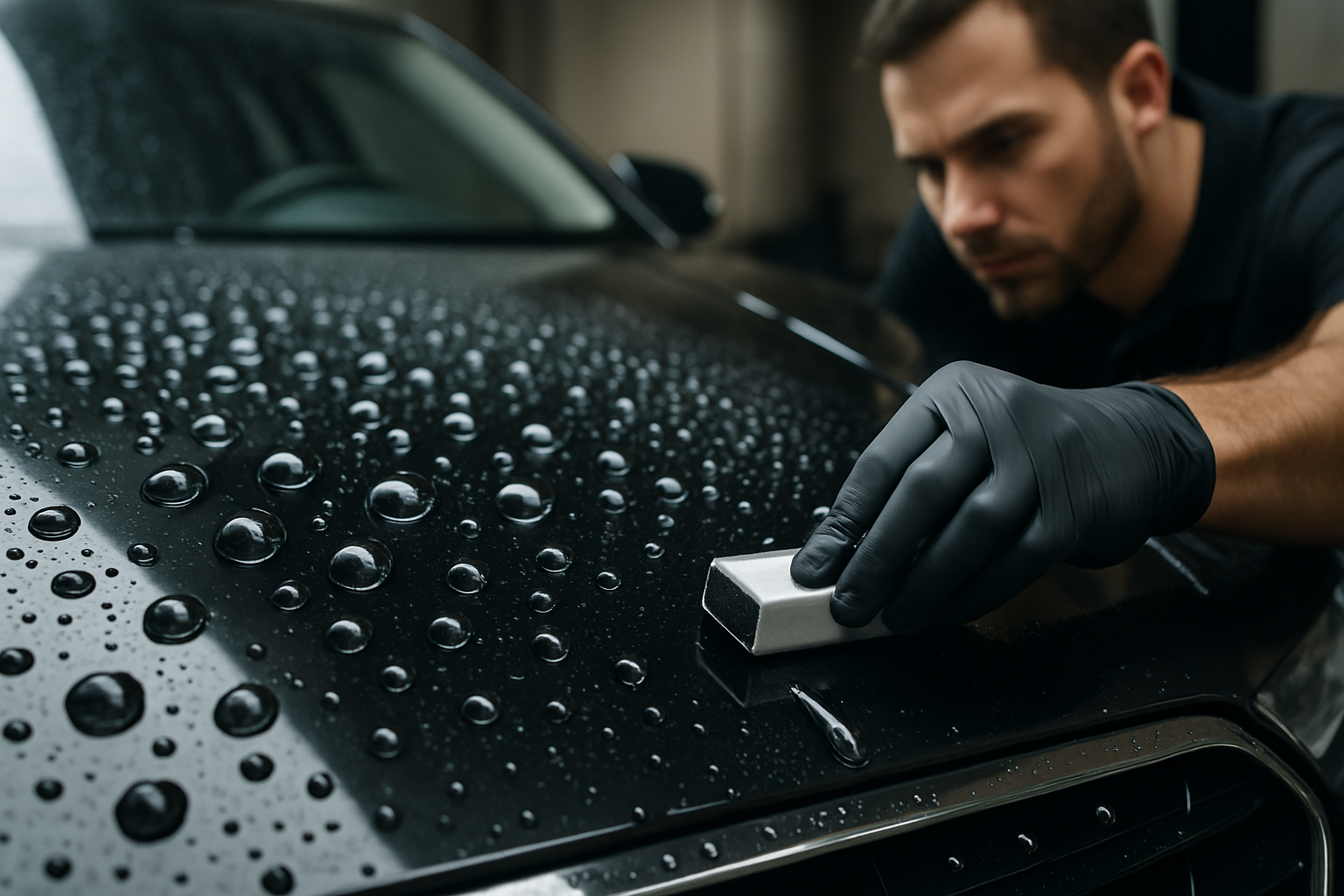Car Detailing Services for Long-Term Car Care
A well-maintained vehicle preserves appearance, performance, and resale value. Car detailing services go beyond a routine wash to address both visible surfaces and hidden areas where dirt, grime, and contaminants accumulate. This article explains what detailing involves, how it differs from basic washing, how detailing supports regular vehicle maintenance, and practical tips for choosing professional local services. The goal is to help vehicle owners decide when to book detailing, what to expect, and how detailing fits into an ongoing care plan.

What is car detailing and how does it differ from washing?
Car detailing is a thorough process that restores and protects a vehicle’s interior and exterior. Unlike a basic washing, which removes surface dirt with soap and water, detailing includes paint decontamination, polishing, waxing or sealants, wheel and brake cleaning, and interior deep-cleaning of fabrics, leather, and plastics. Detailing addresses micro-level issues like swirl marks, embedded contaminants, and interior odors. A proper detailing session typically takes longer and uses specialized products and tools to achieve longer-lasting protection and improved visual condition.
Which aspects of a vehicle are covered by detailing?
A detailing service commonly divides work into exterior and interior treatments. Exterior detailing targets paint, trim, glass, wheels, tires, and undercarriage areas; it can include clay bar treatment, machine polishing, and protective coatings. Interior detailing cleans and conditions upholstery, carpets, dashboard and vents, and may include steam cleaning, stain removal, and odor treatment. Some providers offer engine bay cleaning, headlight restoration, and fabric protection. Detailing focuses on attention to detail, so smaller components like door jambs and window channels are typically cleaned as well.
How does detailing fit into regular vehicle maintenance?
Detailing supports routine vehicle maintenance by preventing surface degradation that can accelerate wear. Regular washing removes salt, dust, and road grime; detailing takes prevention further by removing contaminants that washing can miss and applying protective layers that reduce oxidation and UV damage. While mechanical maintenance keeps a vehicle running, detailing helps preserve exterior finishes and interior materials, which can reduce corrosion and material breakdown over time. Establishing a detailing schedule—seasonally or biannually depending on climate and usage—can complement oil changes, tire rotations, and other service intervals.
When should you choose professional detailing versus DIY washing?
Deciding between professional detailing and DIY washing depends on goals, time, skill, and tools. DIY washing is suitable for routine cleaning and is cost-effective for frequent upkeep. Professional detailing is preferable for restoring paint, correcting swirl marks, deep-cleaning interiors, or applying advanced protective coatings. Professionals have equipment like polishers, extractors, and high-grade chemicals that can be risky if misused. If you plan to apply paint correction or ceramic coatings, or if the vehicle has persistent stains, odors, or oxidation, a professional detailer in your area can provide safer and longer-lasting results.
How to find reliable local services for detailing and washing
Look for detailers with clear service descriptions, before-and-after photos, and transparent policies on products and warranties. Check reviews from multiple platforms and ask for references or examples of recent work. A reputable provider will explain steps they take, list the products used (such as types of waxes or sealants), and provide an estimated timeline. Verify that they carry appropriate insurance and ask about safety protocols for interior materials and electronic components. For convenience, many detailers offer mobile detailing or pickup-and-return options, but ensure their mobile setup meets the same standards as a shop-based service.
Conclusion
Car detailing services offer targeted cleaning, correction, and protection that go beyond washing to preserve a vehicle’s condition and appearance. Understanding the differences between washing and detailing, the areas covered, and how detailing complements mechanical maintenance helps vehicle owners choose appropriate care. When selecting local services, prioritize transparency, experience, and clear service descriptions to ensure results that meet your expectations and protect your vehicle over time.





